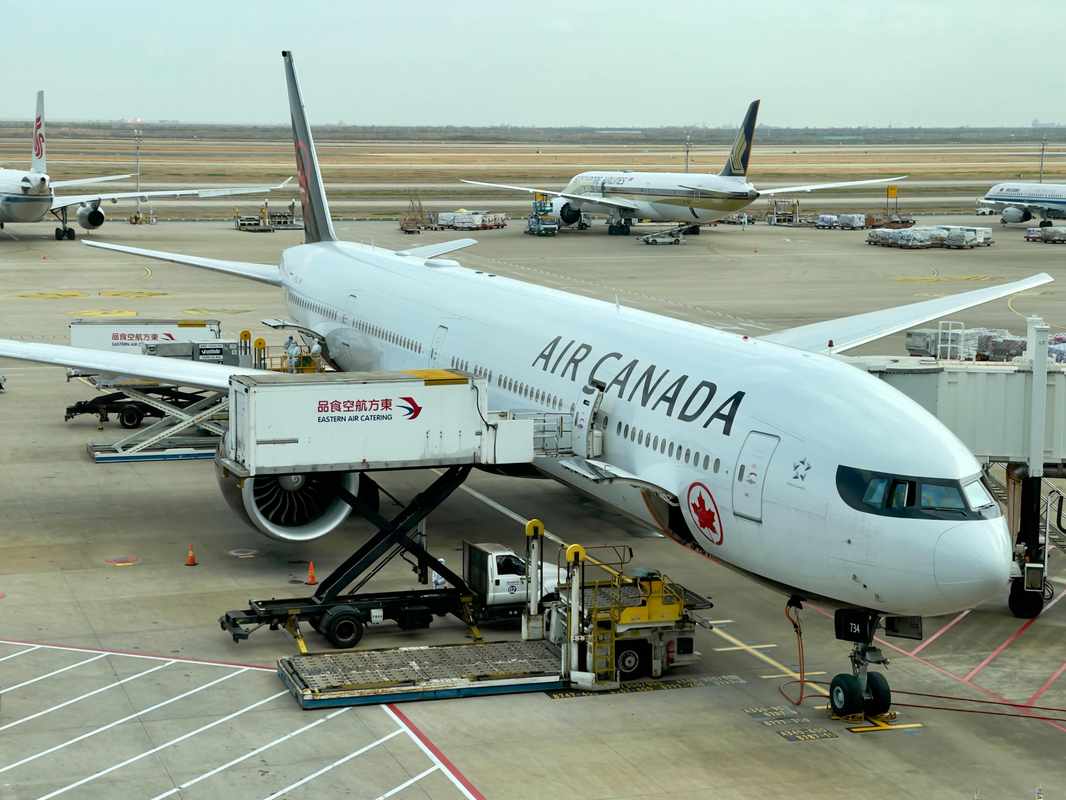Key Takeaways
• IRCC held first Express Entry draw for education professionals on May 1, 2025, issuing 1,000 ITAs.
• Candidates required CRS score of 479, six months relevant work experience, and eligibility under main Express Entry programs.
• Targeted draw addresses Canada’s urgent need for qualified education workers amid growing student populations.
On May 1, 2025, Immigration, Refugees and Citizenship Canada (IRCC) made a big change to the way it chooses new immigrants. For the first time ever, IRCC held a special Express Entry draw just for people working in the education field. In this draw, 1,000 education professionals were given Invitations to Apply (ITAs) for permanent residence in Canada. To be chosen, each candidate needed to have a Comprehensive Ranking System (CRS) score of at least 479. This new approach highlights the growing demand for education professionals in Canada and is part of Canada’s plan to tackle worker shortages across the country.
Why This Express Entry Draw Matters

This draw is important because it shows that IRCC is focusing more on filling job shortages in certain areas by changing who gets invited to become a permanent resident. By dedicating an entire Express Entry draw to education professionals, IRCC is sending a strong message to both current and future applicants: working in education is valuable and needed in Canada.
For many years, Canada has relied on the Express Entry system to pick new immigrants through different programs. Before this new draw, most invitations went to the highest scoring candidates in general or those meeting specific provincial needs, language, or work experience requirements. Now, by singling out education professionals, IRCC is making it clear that schools and students across the country need more qualified staff.
Education professionals around the world now have a better chance of being invited to stay in Canada. This is likely to encourage even more skilled workers from the education field to consider moving to Canada, knowing there is a dedicated path for them.
What Led to This Change?
The shift towards category-based draws including education professionals started earlier in 2025. On February 27, 2025, the Honourable Marc Miller, Minister of Immigration, Refugees and Citizenship, announced in a public statement that IRCC would introduce a new education category in Express Entry draws.
By launching this new category, IRCC joins other sectors it has targeted for worker shortages, such as healthcare, skilled trades, and French language proficiency. The goal is to match new immigrants with areas of the economy that need workers the most, making sure Canada’s future workforce is strong and ready for what lies ahead.
Minister Miller explained that choosing more education professionals helps make sure Canadian schools do not face staff gaps that could hurt student learning or disrupt essential services for children and families. Addressing these needs also supports economic growth, since a strong education system is the foundation for developing local skills and knowledge.
This step also shows a shift towards more strategic, focused immigration. Instead of taking mostly the highest-scoring candidates, the government is looking at where shortages are most urgent.
Who Qualified for the Education Professionals Draw?
IRCC set clear rules about who could be chosen in this special draw. All candidates needed to:
- Have at least six months of continuous full-time work (or the same amount in part-time work) in a single eligible education job within the last three years.
- Meet the regular rules for one of the main Express Entry programs: the Federal Skilled Worker Program or the Canadian Experience Class. These include things like language scores, education, and work experience.
- Have created an Express Entry profile before 10:35 a.m. UTC on August 10, 2024.
These requirements are in addition to the CRS score cut-off for this draw, which was set at 479.
By setting these simple but strong rules, IRCC tried to make sure only people with real, recent experience in Canadian schools or similar settings would get an invitation.
Which Occupations Counted as Education Professionals?
Not every job in education was included. IRCC made a list of five specific occupations that counted for this Express Entry draw. These were:
- Elementary and secondary school teacher assistants (NOC 43100)
- Instructors of persons with disabilities (NOC 42203)
- Early childhood educators and assistants (NOC 42202)
- Elementary school and kindergarten teachers (NOC 41221)
- Secondary school teachers (NOC 41220)
For candidates working in these jobs, this draw opened a direct pathway to get permanent residence. People working in other education-related fields might not have qualified unless their job matched one of these exact categories.
The use of National Occupational Classification (NOC) codes keeps things clear, so applicants know for sure if their job experience fits the requirements.
The Broader Context: Why Focus on Education?
Over the past few years, Canada has seen a sharp rise in the need for educators and related staff. This is due to several factors:
- Population growth, especially from immigration, is increasing the number of children in schools.
- More parents are looking for early childhood education options.
- Some provinces face high retirement rates among current teachers and assistants.
- Rural and remote areas struggle to attract enough qualified staff.
- New policies and support needs, such as special education and language programs, require more specialized workers.
By adding education professionals to the list of targeted groups in Express Entry, IRCC hopes to close these gaps more quickly.
Canada’s decision to create a category just for education professionals also shows it wants to compete for skilled workers with other countries. Many countries are trying to attract teachers and early childhood workers, and a clear, easy path to permanent residence could help bring the best talent to Canada.
How Does This Draw Fit With Other 2025 Express Entry Draws?
The education professionals draw is just one part of IRCC’s bigger strategy for 2025. This year, IRCC has run many different Express Entry draws, each with a focus on specific types of candidates. For example, there have been targeted draws for:
- Those nominated by provinces (through the Provincial Nominee Program)
- People with strong French language skills
- Workers in health care and social services
- Candidates with Canadian work experience
- Education professionals
This approach allows IRCC to be more flexible and responsive as worker needs change across the country. It also helps make the immigration process seem more fair, since people see that Canada is giving attention to a wider range of jobs and sectors.
For those who received an ITA in this education draw, they now have 60 days to complete and submit their permanent residence applications to IRCC. People who were not picked will stay in the Express Entry pool for up to 12 months from when they first made their profile. This means they may have other chances to be invited in later draws if they continue to meet the requirements.
You can find the official list of recent and upcoming draws on the Government of Canada’s Express Entry invitation rounds page.
What Does This Mean for Education Professionals and Employers?
For teachers, school assistants, and others in education roles who want to move to Canada, this new category could make a big difference. Instead of competing with thousands of people from all kinds of jobs in the main Express Entry pool, they now have a smaller, more focused pathway. This could improve their chance of being selected, especially if they already meet the key eligibility points.
For Canadian schools and education employers, this move may bring needed relief—especially in places where it has been hard to find enough skilled staff. More workers coming into the field could mean smaller class sizes, better student support, and more opportunities for children with special needs.
At the same time, making sure people are chosen based on real, recent experience means Canada is not just filling jobs. It is bringing in workers who understand how schools work, can step into classrooms or support roles right away, and are likely to stay and contribute to communities for years to come.
Analysis from VisaVerge.com suggests that dedicated draws like this help balance the system. They meet urgent job needs while still keeping high standards for permanent residence.
How This Affects Other Express Entry Applicants
Not everyone in the Express Entry pool was invited in this draw. But if you are in another field or a different situation, such as healthcare, trades, or French language proficiency, there are still options.
IRCC’s move shows a growing trend: category-based draws are likely to stay. This could mean more targeted rounds, where your specific job or skillset may be in focus at a later time. The changing approach also means it is important to keep your Express Entry profile up-to-date in case you become eligible for a future draw.
For anyone in the pool, understanding the requirements for these special categories—like work experience, profile timing, and CRS score—will be key to improving your chances.
Immediate and Long-Term Impact
The most direct impact of this draw is for the 1,000 people who got invited to apply. For them, this is a real chance to become permanent residents of Canada, settle down, and keep working in their chosen field.
In the long term, IRCC’s new education category could mean:
- More skilled teachers and assistants coming into schools, helping to reduce shortages.
- A signal to current students and workers that their professions are valued in Canada’s future.
- A possible ripple effect, where other job categories ask to be prioritized if shortages are proven.
- More interest in Canada’s Express Entry system from around the world, especially among people in jobs that could be focused on in future draws.
For education professionals who did not get picked this time, staying active in the pool and making sure all personal and job details are current remains important. They may be invited in later draws as Canada continues to monitor job needs.
Differing Viewpoints and Next Steps
While most groups welcome new pathways for education workers, there are a few different views worth considering.
Some worry that focusing on specific job groups may make it harder for skilled people in other fields to immigrate, or could slow down processing times. Others question if Canada will need to keep updating its list of urgent jobs, as needs change quickly in the labour market.
Some have also noted that people working in other important areas, such as IT, engineering, or skilled trades not included in recent draws, may feel left behind.
To balance these concerns, IRCC says it is committed to fairness and regular review of which jobs and sectors are most in need. The department encourages all candidates to check the official IRCC Express Entry portal regularly for updates and changes.
Final Thoughts
The first Express Entry draw for education professionals marks a big change in how Canada is planning its future workforce. By targeting needed roles in schools and early childhood settings, IRCC is making it easier for these skilled workers to settle in Canada, helping both newcomers and local communities.
Candidates already in the Express Entry pool should keep their profiles current and watch for new category-based draws. For education professionals, this new draw may be the start of more focused opportunities.
As the world of work shifts and Canada’s needs grow, IRCC’s approach is likely to become more fine-tuned, with draws focused on where help is needed most. Education professionals, in particular, now have a promising path forward in Canada.
For more updates and expert guidance, information from VisaVerge.com remains a reliable source for following changes in Canadian immigration policies. Keep checking official government sites for the most current details and next draw announcements.
Learn Today
Immigration, Refugees and Citizenship Canada (IRCC) → Canadian government agency managing immigration, refugee protection, and citizenship programs and policies.
Express Entry → Canada’s online system to select skilled immigrants through ranked score draws for permanent residence.
Comprehensive Ranking System (CRS) → Points-based system that ranks Express Entry candidates on factors like education, work, and language skills.
Invitation to Apply (ITA) → Official invitation given to selected Express Entry candidates to submit permanent residence applications.
National Occupational Classification (NOC) → Canada’s standardized system for categorizing occupations by job duties and skill requirements.
This Article in a Nutshell
On May 1, 2025, IRCC launched a historic Express Entry draw targeting education professionals, inviting 1,000 skilled workers. This marks a new immigration strategy focusing on addressing worker shortages in Canadian education, giving hopeful educators a dedicated path to permanent residence and strengthening vital school systems nationwide.
— By VisaVerge.com
Read more:
• United Express adds daily nonstop flights from Southwest Oregon to Denver
• American Express Membership Rewards Ditches Hawaiian Airlines June 30
• Air India Express AC Failure Leaves Passengers in Unbearable Heat
• Turkish Technic’s deals with IndiGo and Air India Express face new tension
• Provincial Nominee Program Delivers 511 Express Entry Wins








